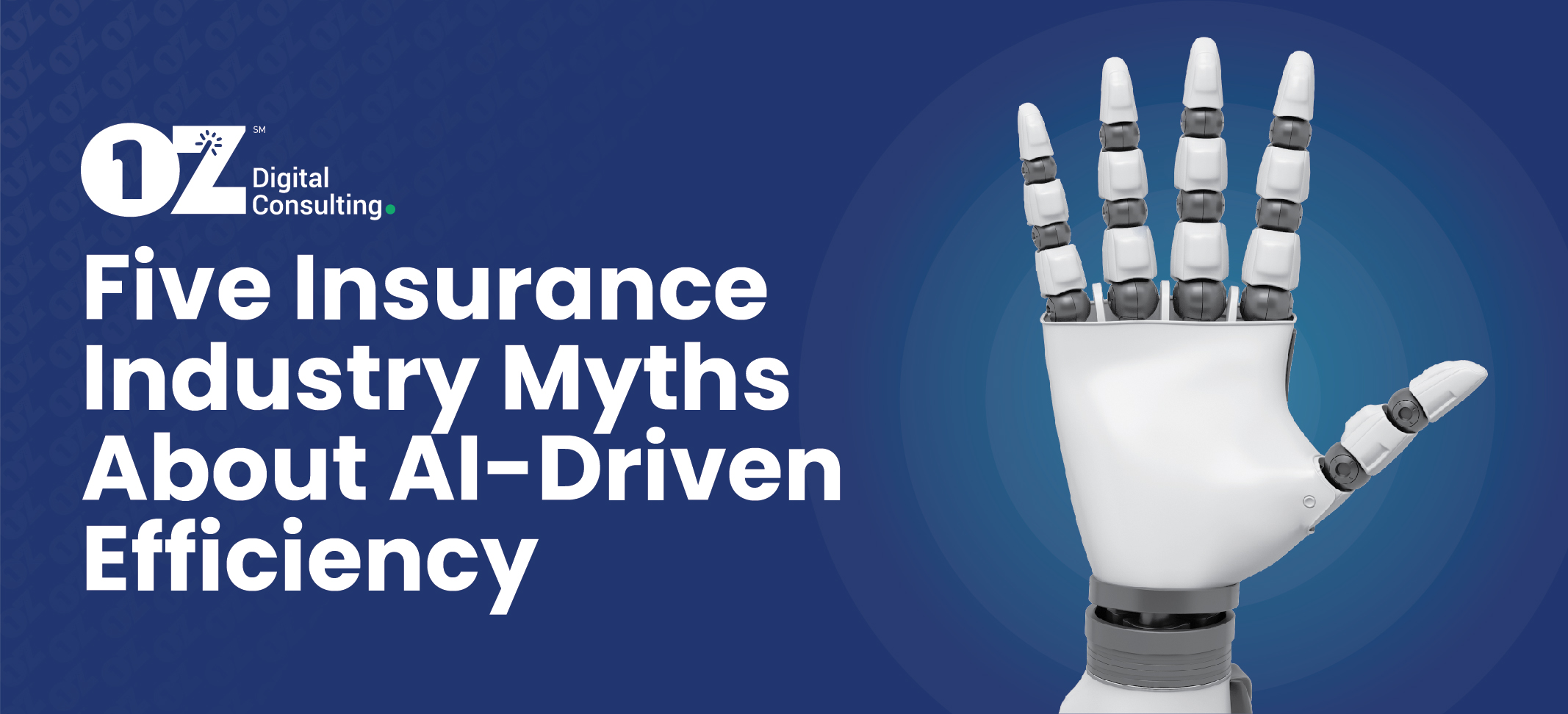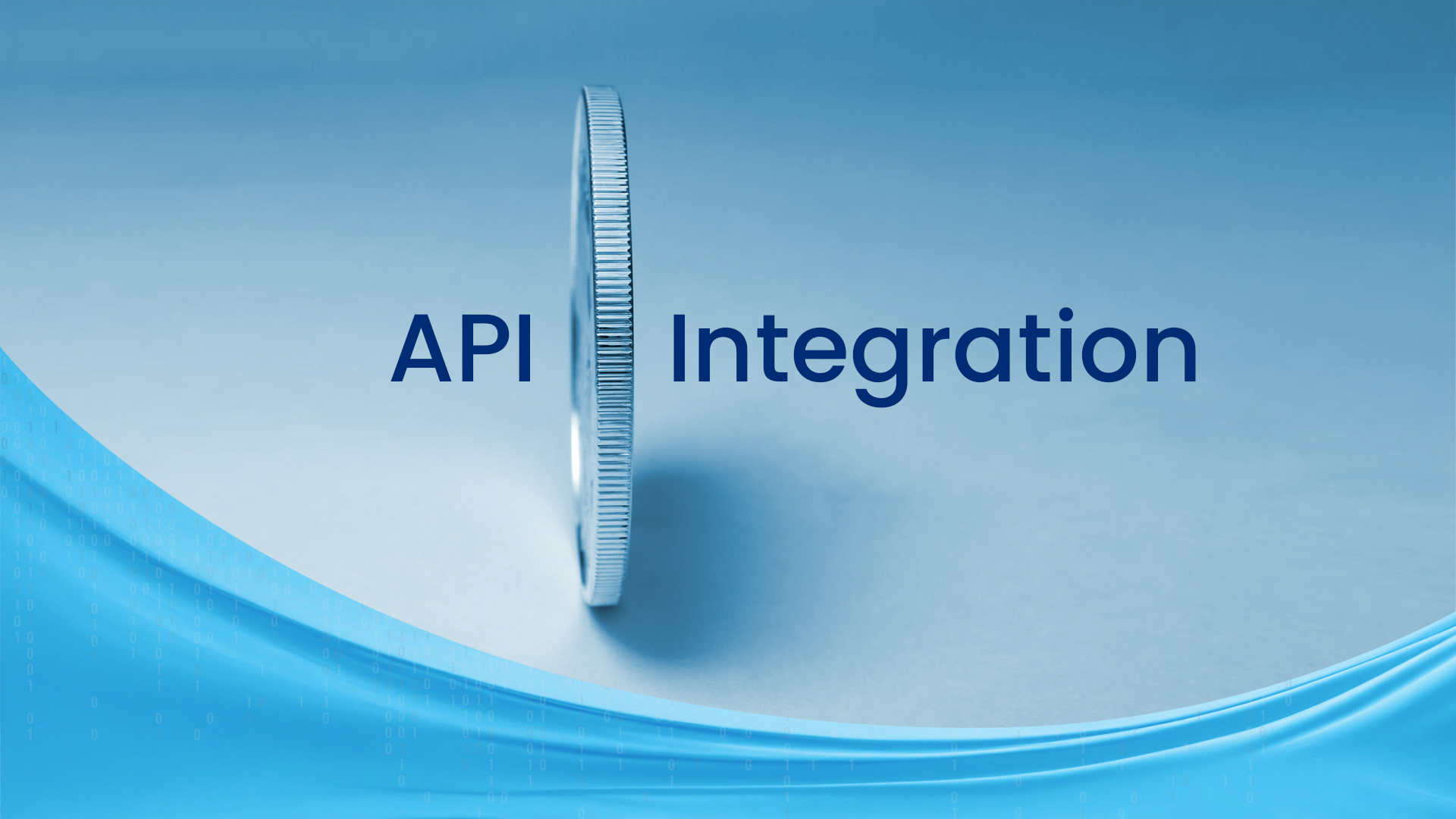Despite some common misconceptions, AI-driven efficiency isn’t relegated to the distant future, nor is it a pipedream. Artificial intelligence is already revolutionizing the insurance industry. You can achieve tangible results by deploying AI strategies now … but only if you stop believing the following myths.
Myth #1: Your Data Is Too Unorganized
Most insurance companies already have a lot of data. The problem is that this data often comes from many disparate sources, and it may not be perfectly organized or integrated. In many cases, it’s a mess.
This may lead you to believe that your data is worthless. Or you may think that getting your data systemized and structured will take forever and is more trouble than it’s worth.
Not so.
Incorporating semi-structured or unstructured data into your system can be a major hassle without the right program, but there are solutions. Thanks to machine learning and other related technologies, it’s possible to overcome the challenges of unstructured data with speed and ease.
Myth #2: Digital Transformation Will Take Too Long
According to Deloitte, 85% of CEOs accelerated digital initiatives during the pandemic, but most of them cannot articulate their strategy or progress except to say that they have invested in technology.
This sounds unsustainable. Insurance professionals need to see improvement now, and they might not feel motivated to invest in something if they don’t think it will pay off in a reasonable timeframe.
The good news is that digital transformation and AI-driven efficiency don’t have to take years. You can see results in weeks when you apply hyper automation. And if you’re not sure where you want to start, process mining can help you identify the most inefficient points in your processes so you can start there.
Myth #3: Automation Will Eliminate the Need for Insurance Professionals
The fear that machinery will replace workers is nothing new. Back in the 1700s, the infamous Luddites worried that machines would take away work from textile workers. Now some agents, adjusters and other insurance professionals may have similar worries about AI.
The truth is that technology does impact jobs – but not always for the worse. AI-driven efficiency can eliminate some of the most tedious tasks in the insurance industry, allowing insurance professionals to focus on things that require a human touch. For example, in McKinsey & Company’s prediction for 2030, automated programs will handle most claims in the future, while human claims handlers will focus on complex, unusual and contested claims, and they’ll have analytics and data-driven insights to support them.
Myth #4: Automation Will Increase Biases
As the insurance industry adopts AI and automation, the risk of introducing bias is one that needs to be addressed.
For example, insurance companies often use credit scores during underwriting, and these credit scores could be used as data in an AI program. However, opponents of the practice argue that using credit scores penalizes people for economic events outside of their control, many of which have a generational impact, and this can lead to unfair bias and discrimination. Recently, Washington Insurance Commissioner Kreidler banned the use of credit scores in underwriting for this very reason.
Data can be biased. However, this does not mean that automation will necessarily increase bias. For example, Property Casualty 360 explains how “fuzzy logic,” a mathematical model that use qualitative data to produce quantitative outputs, could be used to eliminate bias in claims data.
New regulations and guidelines may also help. For example, the NAIC has adopted five guiding principles for AI that can be summarized by the acronym FACTS:
- Fair and ethical
- Accountable
- Compliant
- Transparent
- Secure/safe/robust
Myth #5: Your Insurance Company Has Already Mastered Data and AI
Your insurance company is probably already using some AI applications. However, there’s a good chance you could do a lot more.
Digital transformation can happen fast when you use the right tools. While this is good news if you’re the one getting ahead, it can be disastrous if you’re the one falling behind.
The pandemic lit a fire under many insurance companies, forcing them to adopt digital transformation at a much faster speed than previously planned. Progress was made, but expectations increased at the same time. In fact, the J.D. Power 2022 U.S. Property Claims Satisfaction Study found that satisfaction dropped as digital tools failed to meet expectations and claims took longer and were more complicated than expected.
Looking Forward
Now that you know the facts, you can ditch any limiting AI beliefs and explore a world of new possibilities. If you’re ready to pull ahead of your competitors with AI-driven efficiency, OZ can provide the services and solutions you need to leverage Intelligent Automation. Learn more about our work in P&C insurance and contact us to learn more.



